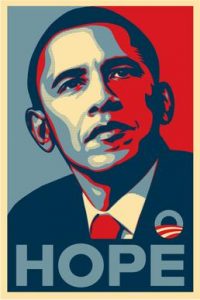 These days when much of the world is closely watching events in Israel, I want to say that, numerous and serious as the problems are, I remain proud of my country. Here is a short list of the reasons why; for a longer one see my 2010 book, The Land of Blood and Honey.
These days when much of the world is closely watching events in Israel, I want to say that, numerous and serious as the problems are, I remain proud of my country. Here is a short list of the reasons why; for a longer one see my 2010 book, The Land of Blood and Honey.
Back in 1914 there were only about 50,000 Jews living in the small, backward, badly neglected and badly governed, country that was then part of the Ottoman Empire. As late as the 1950s, so thinly populated were the environments of Tel Aviv that, visiting my grandparents, I could hear the jackals howl at night. The jackals have long disappeared, a fact that I, recalling the well-publicized cases of rabies among children in particular, can only call a blessing. The Jewish population has grown to about seven million (Arabs and other nationalities included, the total number of Israeli citizens living in-country is about nine million). Few if any other countries have done as well.
Back in 1914 Palestine’s Jews only formed a tiny fraction of the world’s Jewish population, which probably stood at about 13,500,000. Now, if the figures are correct, they form slightly over half of the total. Meaning that Zionism is well on its way to realize its great dream. Namely, in the words of Israel’s national anthem, to make Jews a free people in their own land: the land of Zion and Jerusalem.
In developed countries where contraceptives are easily available and women have a choice, one very good index of people’s confidence in the future is their willingness to have and raise children. Today the average Israeli Jewish female will have 3.05 children during her lifetime, as against the OECD average of 1.65.
Back in 1914 the Zionist Movement’s leading economic expert, Arthur Rupin, estimated that per capita product here in Palestine stood at only about 4 percent of the American figure. 99 years later, the figure is 75 percent. Almost 40 percent of Israel’s GDP are exported—a figure very much like that of a heavily industrialized modern country such as Germany.
As well as having a strong economy, which for a number of years before COVID threw everything out of gear was widely held up as the most successful in the world, Israel built up a powerful military. One armed with the most up to-date weapons and weapon systems and capable, as it has repeatedly shown, of defending the country against larger powers and even combinations of such powers. Considering that the first Jewish self-defense organization in Palestine peaked at just 40 members who rode horses and were armed with nothing but rifles and shabarias (a type of Arab curved knife, much beloved by Bedouin in particular), this has been an amazing achievement.
The Quran calls Jews “the People of the Book.” To practice their religion Jewish males, and to a lesser extent Jewish women, need to be literate so they can read from the Pentateuch as well as the prayer book. As a result, Jews have always tended to be much more literate than their gentile neighbors. Zionism, an urban movement par excellence, embraced this tradition. With the result that, starting from the movement’s early days, Jews in Palestine/Israel were much more literate than non-European peoples in practically any other part of the world. Today Israel is the fifth most-educated country in the world. From kindergarten to universities and research institutes, its education system can compete with practically any of its opposite numbers elsewhere.
At my home, in a mountainous area west of Jerusalem, I have in my possession some photographs taken by the German air force during World War I. As they show, at that time there was not a tree in sight; nothing but rocks and more rocks. As German Emperor Wilhelm II noted when he visited in 1898, “a terrible country, without water and without shade.” Since then Israel has become the only country in the world that, in spite of repeated setbacks (some of them occasioned by Arabs, Israeli or Palestinian, who deliberately set fire to forests) has more trees in 2023 than it did a century earlier.
A British-written guidebook to Palestine, issued by the War Office in 1941-42 for the use of British soldiers on leave from fighting the Germans in the Western Desert, said that “the first thing you’ll notice is how arid the country is.” Today, thanks in part to the use of large-scale desalination, this basically arid country has enough of the previous liquid not only to meet its own needs but those of other countries as well. Some of the water in question is exported, notably to Jordan. The rest is distilled on the spot with the aid of Israeli technology.
Like practically every other country, Israel is no stranger to corruption. Sources put it at the 31st place out of 180. Nothing to be very proud of, but better than five out of six countries in total.
Of well over a hundred countries that got their independence since 1948, Israel is one of the very few that has always been democratic in the sense that regular elections were held. Except in 1973, when the Arab-Israeli War of that time led to a short postponement, all the elections were held on time. All were held following lively electoral campaigns in which almost every point of view was represented and could be freely uttered. That even includes the notorious ones of November 2022. Not once were elections marked by serious disorder, let alone violence. Not once was there any question of the large-scale stuffing of ballots and the like. For me personally casting my vote has become something of a ritual—a slightly festive occasion to meet friend and neighbors whose existence one might otherwise have forgotten.
True, Israel does not have a constitution. But neither does Britain, “the mother of democracies.” True, Netanyahu & Co. want judges to be appointed by politicians. But that is exactly the way American supreme justices ones are. True, he wants to pass legislation that will prevent prime ministers from being prosecuted as long as they remain in office; but that is just how things are done in France. This list could be extended almost indefinitely.
Meanwhile –
Week after week, hundreds of thousands of Israelis have been taking to the streets in an effort to preserve what they (and I) see as their liberal-democratic way of life. So far, the presence in the cabinet of some true firebrands notwithstanding, without any serious violence.
In terms of happiness, Israel occupies place No. 12 out of 180.
Let’s keep it that way.




